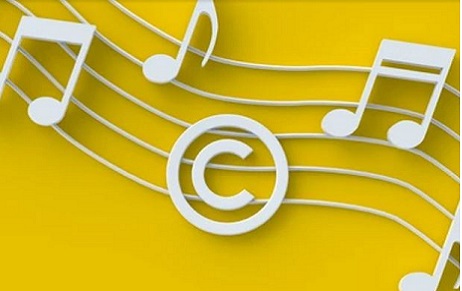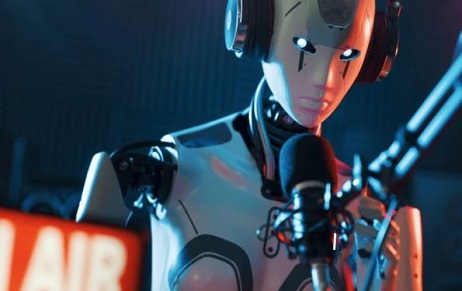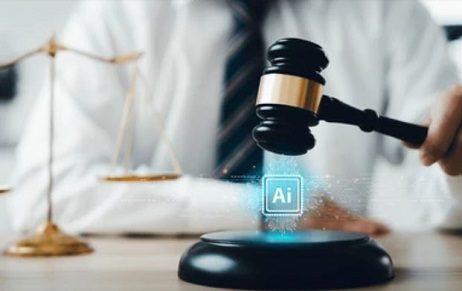Any successful café, restaurant, or retail establishment's environment is greatly influenced by its music. It…
Computer Programme – Infringement Of Indian Copyright Act 1957
Computer Programme – Infringement of Indian Copyright Act 1957, A computer programme can be defined as the instructions that are given to the computer in order to accomplish the desired outcome. The Indian Copyright Act, 1957 (hereinafter referred to as “the Act”) governs copyright protection in India and extends protection to computer programme under the category of literary works[1] provided they constitute ‘original literary works. Under Section 2(ffc) of the Act, a computer programme is defined as a “set of instructions which are expressed in words, codes, schemes or in any other form, which also includes a machine readable medium, capable of causing a computer to perform a particular task or achieve a particular result”.
The purpose of granting protection to these codes under the ambit of copyright law is because they are more prone to be used in an unauthorized manner. Additionally, Section 63B of the Act aims to criminalize the use of infringing copy of a computer programme by one who is aware of the fact that it an infringing copy.
Treaties and Conventions that deal with Software Protection
There are various treaties and Convention like the Berne Convention, Universal Copyright Convention, TRIPS Agreement and WIPO Copyright Treaty.
Berne Convention
The Berne Convention on Copyright was the first international treaty on the subject of Copyright. Under Article 10.1 of the TRIPS Agreement, computer programs whether in source or object code are granted protection as literary works under the Berne Convention (1971). Article 2(1) of the Berne Convention also covers computer programmes irrespective of their mode or form of their expression.
Universal Copyright Convention
Literary, artistic, and scientific works are protected by Article 1 of the UCC. In accordance with Article 2 of UCC’s, software created or published for the first time by an author in a contracting state is also covered by the copyright laws of the other UCC member countries.
TRIPS Agreement
This Agreement protects Software in three ways. Patents and Trade Secrets. The above agreement specifically includes software as copyrighted works. Article 10 of the aforementioned agreement specifies that software must be protected like literary works under the Berne Convention. Copyright does not protect algorithms that are merely concepts. Source and object codes are considered the expression of ideas because they are the result of algorithms.
WIPO Copyright Treaty
Article 4 of the WIPO Copyright Treaty makes it clear that computer programmes are protected as literary works under Article 2 of the Berne Convention.
Position in India
Even after two decades of the introduction of clauses relating to computer programme protection under the Copyright Act, India’s position remains shallow because of a lack of case law from either the Supreme Court of India or the high courts. There also lies ambiguity with respect to the issue of how non-literal elements of a computer software will be dealt with.
One of the significant cases that is widely used in the copyright sphere is RG Anand v. Delux Films (1978),[2] where the court opined that the best test for copyright infringement is to see whether a reader, spectator or the viewer after reading or seeing both the works forms an opinion that one of the works appears to be a copy of the original work. This indicates that court gives relevance to the ‘look and feel’ approach.
Adobe Systems, Inc & Another v. Mr. Mahindra Saxena & Others (2009) [3]
In Adobe Systems and M/s Microsoft Corporation filed a lawsuit against the defendants seeking a permanent injunction to prevent them from infringing on their copyrights, trademarks, and other intellectual property. According to the court, the plaintiffs have statutory rights with respect to the programme and the defendants’ use of counterfeited or duplicate software is illegal and a violation of Copyright Laws. In addition to harming the plaintiff financially, it also misleads the public.
Additional extra-territorial applicability is provided by the Information Technology Act, 2000. Section 1(2) read with Section 75, which means that someone from outside India who infringes on another country’s Copyright through an Indian-hosted computer programme or network will be held accountable under Indian law.
Microsoft Corporation and Another v. Kanhaiya Singh and Another (2016),[4]
In the present case, the Delhi High Court found the defendants guilty of passing off and instructed the defendant to pay 20,00,000 to Microsoft Corporation in a software piracy case and also granted the plaintiff perpetual injunction against the defendant from passing off Microsoft products. The court decided that the putting the plaintiff’s software into computer hard disks and selling them constituted to software piracy and consequently held the defendants to be guilty of software infringement.
Conclusion
From the above, it is clear that software infringement is protected by both International Conventions and Indian Copyright Law. In India, in order to prove infringement, the Substantial Similarity Test is used. However, the stance taken by countries in this case differs from that of the Indian Courts. In other countries like the US, the test that is primarily used is the Abstraction, Filtration and Comparison Test that is laid down by the US. It is suggested that these tests are also put to use by the Indian judiciary in order to determine software piracy or copyright infringement. Furthermore, the concept of infringement of ‘non-literal elements’ can also be introduced in the copyright Act to avoid uncertainty in this regard.
Author: Liyana Shaji – a student of Symbiosis Law School, Pune in case of any queries please contact/write back to us via email chhavi@khuranaandkhurana.com or contact us at IIPRD.
References:
[1] Section 2(o) of the Copyright Act, 1957.
[2]RG Anand v. Delux Films, AIR 1978 SC 1613.
[3]Adobe Systems, Inc & Another v. Mr. Mahindra Saxena & Others Case no. CS (OS) No.782/2002, decided by the Delhi High Court on 7 July, 2009.
[4]Microsoft Corporation and Another v. Kanhaiya Singh and Another 5 W.P.(CRL) 558/2016 &Crl.M.A. Nos.3237/2016 & 3262/2016.



